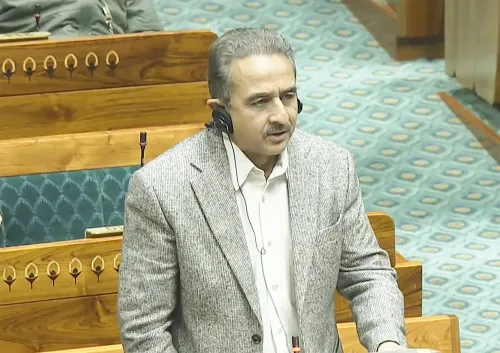Is Surgery More Effective in Treating Chronic Sinusitis Than Antibiotics?

Synopsis
Key Takeaways
- Surgery is more effective than antibiotics for chronic sinusitis.
- 87% of patients reported improved quality of life post-surgery.
- Low-dose antibiotics showed no significant benefit.
- The study involved over 500 patients across the UK.
- Results could change treatment protocols for sinusitis patients.
New Delhi, Aug 30 (NationPress) A significant clinical trial reveals that surgery for chronic sinus disease may surpass antibiotics in effectiveness. Chronic rhinosinusitis (CRS), or sinusitis, manifests through symptoms such as a blocked or runny nose, diminished sense of smell, facial discomfort, fatigue, and exacerbated breathing issues like asthma. These symptoms can be akin to those of a severe cold, persisting for months or even years.
The study, featured in The Lancet, demonstrated that surgery effectively alleviated sinusitis symptoms, with participants reporting sustained improvement six months post-operation. Remarkably, 87 percent of those who underwent surgery indicated a boost in their quality of life after six months.
In contrast, a three-month regimen of low-dose antibiotics yielded no significant benefit, showing no notable difference in outcomes compared to the placebo group.
“Our findings reveal that surgery significantly mitigates symptoms even after six months, whereas antibiotic treatment appears to offer minimal relief. This trial provides the first substantial evidence that sinus surgery is more effective than medical interventions, potentially transforming treatment for patients globally,” stated lead author Professor Carl Philpott from the University of East Anglia’s Norwich Medical School.
In a randomized controlled trial involving over 500 patients across the UK, researchers from University College London (UCL) compared the efficacy of sinus surgery against long-term antibiotic use and a placebo.
All participants followed a treatment regimen that included nasal steroids and saline rinses, both known to assist with the condition.
Follow-up assessments were conducted at three and six months, where researchers evaluated nasal and sinus conditions, airflow, and conducted smell tests to assess treatment success regarding symptom improvement, quality of life, and potential side effects.
The results clearly indicated that sinus surgery proved to be more effective than antibiotics.
“We aspire that our results will expedite patient access to treatment. Optimizing clinical pathways could minimize unnecessary visits and consultations, ultimately conserving healthcare resources,” Philpott added.










